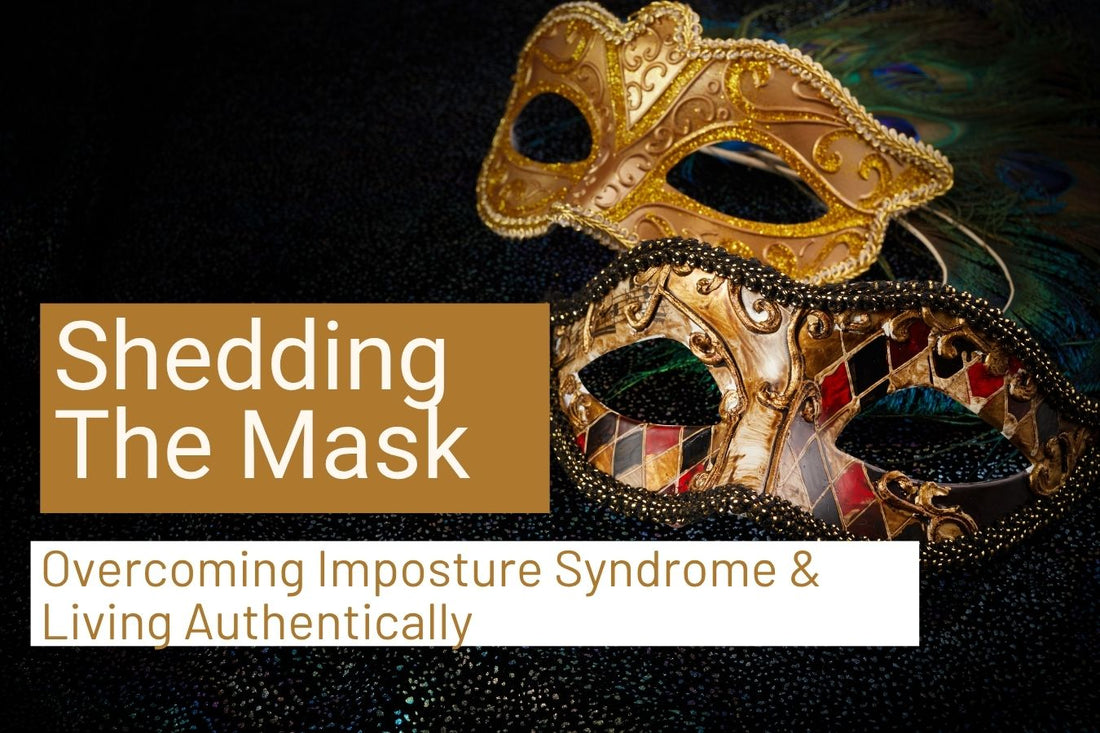
Shedding the Mask: Overcoming Impostor Syndrome and Living Authentically
Share
Have you ever felt like your accomplishments weren’t really yours that somehow, people might “find out” you’re a fraud? You’re not alone. In today’s world of curated social media feeds, relentless comparisons, and high societal expectations, Impostor Syndrome quietly chips away at confidence. It tells you your successes are luck, your abilities aren’t enough, and that your authentic self isn’t worthy of recognition.
But here’s the truth: you’re not broken. Impostor Syndrome thrives in silence and self-criticism, but by shining a light on it, understanding its roots, and practicing self-reflection, you can reclaim your authenticity and step fully into your power.
Understanding Impostor Syndrome
What it is: Impostor Syndrome is a psychological pattern where individuals doubt their achievements, fear being exposed as a fraud, and attribute successes to luck rather than skill.
Why social media makes it worse: Scrolling through picture-perfect lives, glowing achievements, and seamless promotions can make anyone feel like they’re not enough. Remember: every feed is curated — comparison steals your confidence.
How it blocks growth: Impostor thoughts can stall emotional healing, make you avoid opportunities, and convince you that the “mask” of competence is the only thing keeping you safe.
Relatable Ways Impostor Syndrome Shows Up
-
At work: You get promoted but feel unworthy, fearing your boss made a mistake.
-
Socially: You hesitate to share accomplishments, worried about judgment or envy.
-
Creatively: You delay launching projects because they “aren’t good enough.”
-
Academically: You succeed but chalk it up to timing, luck, or help from others.
Even small moments like these chip away at your energy, focus, and self-trust.
Why the Mask Feels Safe
-
Living a mismatched narrative: Following careers, trends, or expectations that aren’t truly yours.
-
Ignoring your truth: Suppressing your authentic self strengthens the mask and creates internal conflict.
-
Hijacked inner dialogue: Self-criticism minimizes achievements and convinces you that the real you isn’t enough.
Cultivating awareness and reconnecting with your authentic self is the key to breaking free.
Reflective Questions to Spot Impostor Patterns
-
Do I downplay my achievements, attributing them to luck rather than effort?
-
How does social media amplify my feelings of inadequacy?
-
Do I feel like I’m “faking it” even after real success?
-
How does comparison impact my confidence?
-
Do I make decisions to meet expectations instead of honoring my desires?
-
Does my inner dialogue reinforce self-doubt or minimize success?
-
Have I avoided opportunities because I feared exposure as a fraud?
-
Do I live in alignment with others’ standards rather than my own values?
-
How do societal pressures steer me away from authenticity?
-
Have I cultivated self-acceptance and acknowledged my strengths?
Answering these questions honestly is a powerful first step toward reclaiming your energy and confidence.
Breaking Free: Reclaiming Your Authentic Power
Unmasking Impostor Syndrome isn’t just self-reflection—it’s realignment. By acknowledging its presence, you can dismantle unrealistic standards and reconnect with your inner voice. Practices like journaling, chakra healing, and shadow work can help release doubt and fear, creating space for confidence, self-love, and authenticity.
Remember: Impostor Syndrome thrives in isolation. Celebrating small wins, speaking openly about your successes, and trusting your worth are all acts of energetic empowerment. The more you embrace your authenticity, the less power the mask holds over you.
Gentle Reminder
Your worth is inherent, not conditional. Every success, every brave choice, and every step forward reflects your true self — unmasked, unapologetic, and aligned.
Support your journey of self-trust and authenticity with tools like the Chakra Healing Collection, shadow work journals, and energy healing candles, designed to help you release limiting beliefs, strengthen confidence, and reconnect with your true self.
